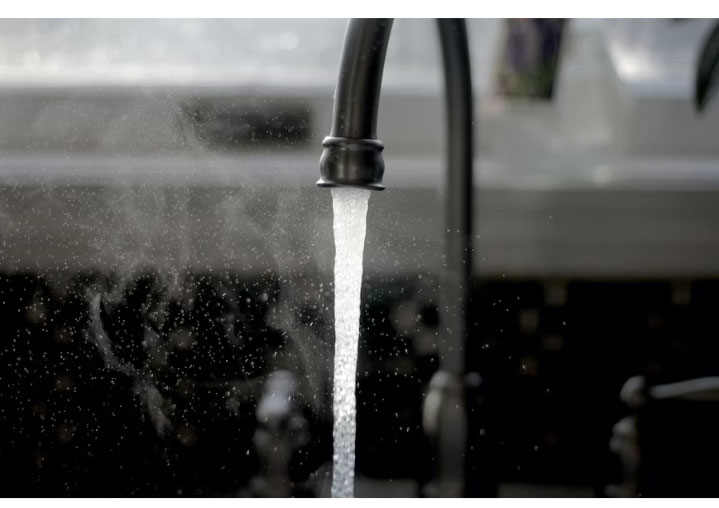Water is a fundamental resource in every household, essential for drinking, cleaning, and cooking. However, not all water is the same. The term “hard water” refers to water that contains high levels of dissolved minerals, primarily calcium and magnesium. While hard water is generally safe to drink, it can have significant effects on your plumbing system over time. In this article, we will explore the impact of hard water on your plumbing and the potential issues it can cause.
Mineral Buildup in Pipes
One of the primary concerns with hard water is the formation of mineral deposits inside pipes and fixtures. As hard water flows through your plumbing system, it leaves behind calcium and magnesium deposits on the interior surfaces of pipes. Over time, these deposits can accumulate and restrict water flow, leading to reduced water pressure and potentially clogged pipes. In severe cases, complete blockages can occur, causing costly plumbing repairs.
Reduced Efficiency of Water Appliances
Hard water can also affect the performance and efficiency of water-using appliances. When heated, the minerals in hard water can precipitate and form lime scale inside appliances like water heaters, dishwashers, and washing machines. The buildup of lime scale reduces the efficiency of these appliances, making them work harder and consume more energy. This inefficiency not only increases utility bills but also shortens the lifespan of the appliances, necessitating more frequent replacements.
Water Heater Problems
Water heaters are particularly susceptible to the effects of hard water due to the constant heating and cooling of water. The buildup of lime scale in the water heater’s heating element can create an insulating barrier, reducing the unit’s ability to heat water efficiently. As a result, the water heater may take longer to heat water, wasting energy and increasing your energy costs.
Moreover, lime scale can also lead to a phenomenon known as “hot spots” in the water heater. These localized areas of intense heat can cause the water heater’s metal to weaken, leading to cracks or leaks. The constant presence of hard water can accelerate the deterioration of the water heater and shorten its lifespan significantly.
Faucet and Showerhead Blockages
Hard water can leave unsightly stains and mineral deposits on faucets and showerheads. The buildup of lime scale can restrict the flow of water, causing low water pressure and uneven spray patterns. Additionally, the mineral deposits can make cleaning more challenging and reduce the aesthetic appeal of your bathroom and kitchen fixtures.
Soap Scum and Difficulty Lathering
Hard water’s mineral content can interfere with the effectiveness of soaps and detergents. The calcium and magnesium ions in hard water react with the soap, forming a soap scum residue that is difficult to rinse away. This soap scum can accumulate on bathroom surfaces, making cleaning more time-consuming and less effective.
Moreover, the reduced lathering of soap in hard water can lead to using more cleaning products than necessary, increasing household expenses and environmental impact.
Skin and Hair Issues
Hard water can also have an impact on your skin and hair. The soap scum left on the skin can lead to dryness and irritation, while the reduced lathering of shampoos can leave hair feeling less clean and manageable. Some individuals may experience increased skin sensitivity and scalp issues due to the effects of hard water.
Preventive Measures and Solutions
To mitigate the impact of hard water on your plumbing system, several solutions are available:
Water Softeners: Installing a water softener is the most effective long-term solution for addressing hard water problems. Water softeners use ion exchange to remove calcium and magnesium ions from the water, preventing mineral buildup in pipes and appliances.
Descaling Agents: Periodically using descaling agents can help dissolve and remove existing limescale deposits from fixtures and appliances.
Regular Maintenance: Schedule regular maintenance checks for your water heater and other water appliances to ensure optimal performance and efficiency.
Faucet Aerators and Showerhead Filters: Installing faucet aerators and showerhead filters can help improve water flow and reduce mineral buildup on these fixtures.
Vinegar or Lemon Juice Cleaning: Using natural acids like vinegar or lemon juice can help dissolve mild lime scale deposits on fixtures and surfaces.
Don’t Let Hard Water Ruin Your Pipes
Hard water may seem harmless, but its effects on your plumbing system can be significant and costly. From clogged pipes to inefficient appliances, the impact of hard water can lead to various plumbing issues. By taking preventive measures, such as installing water softeners and practicing regular maintenance, you can protect your plumbing system, enhance its efficiency, and extend its lifespan. Additionally, using alternative cleaning methods and addressing skin and hair concerns can help improve your overall quality of life in a hard water environment. Remember that consulting a water filtration service in Los Angeles can provide valuable insights and tailored solutions to combat the impact of hard water on your specific plumbing setup.

0 Comments